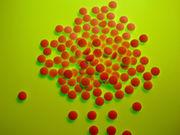In rat model, rosuvastatin induces phosphorylation of Akt, GSK-3β and prevents oxidative stress
MONDAY, Sept. 12, 2016 (HealthDay News) — Postconditioning with rosuvastatin prevents myocardial ischemia-reperfusion injury in a rat model, according to a study published online Aug. 31 in Cardiovascular Therapeutics.
Chun-Wei Liu, from Tianjin Medical University in China, and colleagues examined whether postconditioning with rosuvastatin could reduce myocardial ischemia-reperfusion injury. In the presence and absence of rosuvastatin, isolated rat hearts underwent 30 minutes of ischemia and 60 minutes of reperfusion.
The researchers found that myocardial infarct size was reduced significantly and cardiac function improved with rosuvastatin at 5 and 10 nM. At higher concentrations, protection disappeared; increased damage was seen at 50 nM. Rosuvastatin increased the phosphorylation of protein kinase B (Akt) and glycogen synthase kinase-3β (GSK-3β) at 5 nM, in parallel with an increased Ca2+ load required to open the mitochondrial permeability transition pore (mPTP). Superoxide dismutase activity was increased significantly and malondialdehyde and radical oxygen species levels were decreased with rosuvastatin postconditioning. These protective effects were abolished with LY294002 phosphatidylinositol-3-kinase (PI3K) inhibitors.
“Rosuvastatin prevents myocardial ischemia-reperfusion injury by inducing phosphorylation of PI3K-Akt and GSK-3β, preventing oxidative stress and subsequent inhibition of mPTP opening,” the authors write.
Copyright © 2016 HealthDay. All rights reserved.








